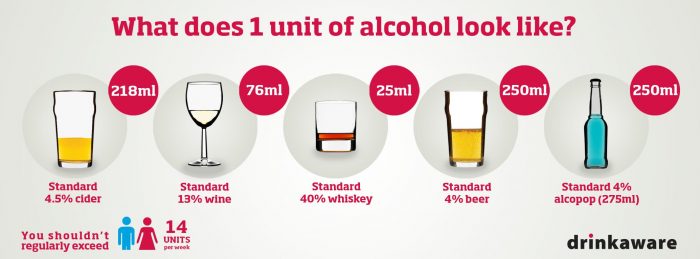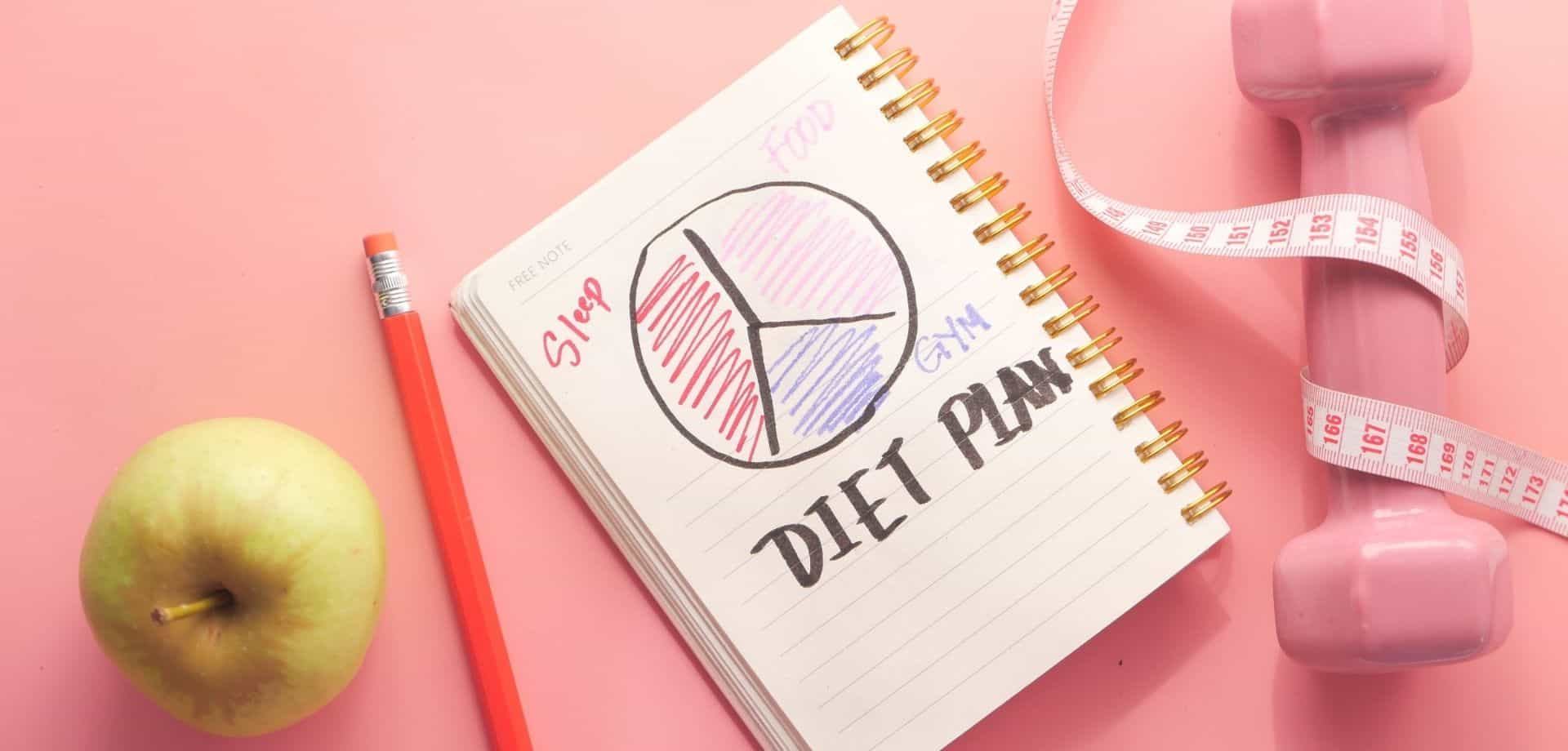Tag: dietetics
Dry January grows in popularity year on year.
The campaign by Alcohol Change UK, encourages participants to give up alcohol for the entire month of January.
The dry January one-month booze-free challenge can have a significantly positive impact on your health.
Alcohol has proven to increase the risk of developing a range of health problems (including cancers of the mouth, throat and breast) and that risk increases the more you drink on a regular basis.
Ruth Kander, our dietitian, looks at what is considered a safe amount of alcohol consumption.
The UK Chief Medical Officers’ (CMOs) guideline for keeping health risks from alcohol to a low level for both men and women states that:
- It is safest not to drink more than 14 units a week on a regular basis.
- Regularly drinking as much as 14 units per week, it’s best to spread your drinking evenly over three or more days.
– If you have one or two heavy drinking episodes a week, you increase your risk of death from long-term illness and injuries. - Cutting down the amount you drink, a smart way to help achieve this is to have several drink-free days a week.
A useful website for more information about alcohol is www.drinkaware.co.uk
What is a unit of alcohol?

How long does alcohol stay in your body?
On average, it takes about one hour for your body to break down one unit of alcohol, however, this can vary, depending on:
- Your weight
- Whether you’re male or female
- Your age
- Your metabolism – how quickly or slowly your body turns food into energy
- How much food you have eaten
- The type and strength of the alcohol you have consumed
- Whether you’re taking medication and, if so, what type
- It can also take longer if your liver isn’t functioning normally
If I am on medicines can I drink alcohol?
People taking sedative drugs (like diazepam/valium) or antidepressants (like fluoxetine/Prozac) should avoid alcohol altogether.
There are some antibiotics; metronidazole and tinidazole which just do not mix with alcohol – drinking with these will make you sick. But for most commonly prescribed antibiotics, drinking is unlikely to cause problems so long as it is within the low-risk alcohol unit guidelines.
People taking long-term medications should be careful about drinking, as alcohol can make some drugs less effective and long-term conditions could get worse. Examples of long-term medications include drugs for epilepsy, diabetes, or drugs like warfarin to thin the blood.
(From www.drinkaware.co.uk)
What are the consequences of drinking too much alcohol?
- Low mood/mood swings
- Liver problems
- Heart problems
- Cancers (mouth, tongue, throat, oesophagus)
- Weight gain
- Poor sleep
- Blood pressure instability
By Ruth Kander BSc(Hons)RD | Dietitian
If you wish to discuss ways to maintain a healthy diet and reduce your alcohol consumption, Ruth holds a virtual clinic every Friday from 9am-2pm. Please call our reception team on 020 7353 5678 if you would like to request a face-to-face appointment
How to Stay Healthy This Winter
When the temperature drops outside, it’s tempting to reach for comforting, high-calorie food and avoid exercise. Feeling cold, along with short days and weight gain can lead to the onset of Seasonal Affective Disorder or depression in the winter months.
Fleet Street Clinic’s Consultant Dietitian, Ruth Kander BSc (Hons) gives some practical advice on what you can do to avoid the winter blues.
Consume a Variety of Foods
By eating foods from all the food groups, you will have all the nutrients you need to stay healthy and keep winter germs at bay whilst maintaining your energy levels.
Eat Plenty of Fruits and Vegetables
These will give you vitamins and minerals to help your body fight winter bugs. Vitamin C is especially beneficial in the fight against colds and sore throats. Avoid taking supplements which contain high concentrations of vitamins which can lead to medical problems. Fruit and vegetables high in vitamin C include kiwi, citrus fruits, spinach, pumpkin and sweet potato. Zinc is also a good mineral to help fight winter infections and boost the immune system. Foods containing zinc include fish, oysters, poultry, eggs, milk, unprocessed grains and cereals. If you’re short on time, using a blender to create a vegetable and fruit drink is a great way to pack your diet full of vitamins. Try combining lettuce, cucumber, spinach, ginger, berries and a dash of orange juice and water for a zingy, low-sugar start to the day.
Keep the Pantry Cupboard Well Stocked
Good foods to store include:
- Tinned beans and lentils
- Tinned tomatoes
- Whole-wheat pasta
- Brown rice
- Couscous and noodles
- Wholegrain cereals – for example, Porridge and Weetabix
Plan Your Meals
Make soups and casseroles in advance and freeze. That way you can come home to a nutritious meal in the evenings. Simply take out of the freezer in the morning so that they are ready to heat up after work.
Watch Portion Sizes
To avoid eating too many carbohydrates, try eating your meals at the table with the TV turned off, use smaller plates and reserve half your dinner plate for vegetables. If you want more after your first serving, have some soup or more hot vegetables.
Stay Active
It’s tempting to reduce your exercise regime in the colder months. But small efforts can go a long way to help stave off winter weight gain. Going for a regular, brisk walk or using an exercise video at home can be enough to maintain your weight and stay healthy over the winter.
Drink Plenty of Fluids
Try to avoid getting dehydrated. This can make you feel overly tired and unnecessarily run down. Drink plenty of fluids throughout the day that are either low calorie or calorie-free – aim for 2 litres a day. Be aware that your daily hot drink from the coffee shop can contain 360 calories or more!
Looking for an alternative to still water? Try green tea, regular tea, herbal teas, regular coffee, hot no added sugar cordial or lemon water.
Consult Fleet Street Clinic
Ruth Kander holds a virtual clinic every Friday from 9am-2pm for individual dietitian consultations and ongoing weight management courses. Please call our reception team on +44 20 7353 5678 if you would like to request a face-to-face appointment
So Veganuary and Dry January are over… what happens next?
With your January healthy challenges over, you may be feeling healthier and refreshed knowing you have managed to stay vegan and/ or teetotal for 1 month. For some of you these new eating and drinking habits are here to stay but for many of you, it is now time to reintroduce meat and alcohol back into your diet safely.
A key theme to remember is everything in moderation!
What you eat and drink forms the backbone of maintaining a healthy lifestyle, which should always be the goal of any dietary alterations. Everyone’s dietary needs are different depending on their age, size and activity so there are no concrete rules to follow.
Read my top tips on how to reintroduce food and drink safely back into your diet.
Veganuary Tips:
Plant proteins are low in fat and high in fibre which is great for your gut health and cholesterol so following Veganuary these should continue to play a key part in your diet.
It is important to reintroduce food gradually and to start light. For the first few weeks stick with a predominantly plant protein diet and begin by introducing eggs and dairy initially. Move on to poultry and fish as these are easier for the body to digest than red meat but are high in healthy proteins. You will get the benefit of high-quality proteins and you won’t be missing out on iron.
Red meat is not bad for your body in moderation but it is calorie dense and the body digests it slower than any other food group. Your body won’t be used to the high protein content of red meats at the moment so introduce them in small quantities at first, building up so not to aggravate your digestive system.
Dry January Tips:
With regards to alcohol, it’s always nice to have a glass of wine with a meal or to relax at the weekend. But moderation is key. Try to keep within the limits of 14 units a week for both males and females and have frequent alcohol-free days throughout the week. It is important to remember not to have 6 alcohol-free days and save all 14 units to be consumed in 1 day, spread the 14 unit out evenly across the week.
An example of responsibly consuming alcohol could look like:
Weekly Alcohol Plan |
|
| Monday | Alcohol-free |
| Tuesday | 1 medium glass wine or equivalent |
| Wednesday | 1 medium glass wine or equivalent |
| Thursday | Alcohol-free |
| Friday | 3 medium glass wine or equivalent |
| Saturday | 2 medium glass wine or equivalent |
| Sunday | Alcohol-free |
*175ml (Medium Glass) = 2 Units / 250ml (Large Glass) = 3 Units

Drinking alcohol on an empty stomach will make you hungrier and increases the likelihood of snacking and unhealthy eating. It is much more preferable to drink alcohol with a meal as eating will distract you and make you fuller meaning you’ll consume less alcohol.
By Ruth Kander BSc(Hons)RD | Dietitian
If you wish to discuss ways to maintain a healthy vegan diet or would like more advice on how to reintroduce food back into your diet, Ruth can help. You can book a dietetics appointment online.
Our InBody scanner lets you take control of your health
Do you want to take steps to manage your weight? Are you looking to lose weight or gain muscle? If so, the first step to changing your body is to get accurate measurements of your current stats.
Here at the Fleet Street Clinic, our Inbody scanner provides you with a detailed analysis of your body’s composition. This gives you an accurate way to measure your weight g oals.
You can use the InBody scanner by booking an appointment. Our nurse will measure your height, document your age and the scanner does the rest! Accurately measuring your weight, body fat, muscle mass, BMI and basal metabolic rate, the InBody scanner tells you if you are above, below or in the normal range for your age and height. You’ll receive your results as a one-page analysis, which we will talk through with you. From this, you can set your achievable long-term health goals.
Look for more help with your health goals?
If you’re looking to get some more direction on how to achieve your health goals, our dietitian provides weight management advice to improve your health to optimal levels.
January is here and with it comes a fresh New Year, a good time to shed any extra weight gained over the party season. Sadly, despite all the ‘quick fix’ diets, and a variety of diet pills on offer that promise you will ‘drop ten sizes in ten days’, there is no miracle cure.
WHAT IS A FAD DIET?
A fad diet is normally endorsed by a celebrity of some sort and or a non-healthcare professional and will usually cut out one or more food groups. What will usually happen is that you try the fad diet and lose weight very quickly. So what’s the catch? You’ll inevitably get bored as the diet will be unsustainable, and then return to your normal eating habits and put all the weight back on and more.
HOW TO SPOT A FAD DIET
Does your new diet:
- Cut out major food groups such as wheat, dairy or yeast?
- Promise you’ll lose more than 2lbs a week?
- Seem very restrictive and hard to follow?
- Require that you buy special expensive foods to follow it?
- Tell you the reason you ‘can’t lose weight’ is probably a food allergy?
- Provide no clinical evidence?
- Promises to be the answer to all your problems?
Yes to any of the above? It’s a fad.
Be aware of who is offering advice:
There are many people out in the world today promoting all sorts of diets to help you feel great and lose weight, however many of them are not medically trained.
Be aware of practitioners who use tests such as:
- Blood tests, especially those that mix your blood with food.
- Hair mineral analysis to tell you what you should eat.
- Stool analysis.
- Looking in your eyes to tell you what diet to follow.
- Kinesiology.
- Face reading.
None of these have any clinical evidence that they can help with weight or any other nutritional issues.
BUT I STILL WANT TO LOSE THOSE EXTRA POUNDS… think of the phrase ‘eat half, walk double’!
Let’s go back to basics:
- Have three, balanced meals spread out throughout the day.
- Eat the three meals in a 12 hour time frame.
- Have 5 portions of fresh fruits (2-3 portions) and vegetables (2-3 portions) daily.
- Include two portions of protein daily – tofu, beans, lentils, soy, chicken, eggs, fish.
- Balance out your meals. Lunch and supper should be half a plate of vegetables, a quarter protein and a quarter carbohydrates.
- Get in 30 minutes of exercise daily. Cycle to work, go for a walk on your lunch break – get moving!
- Avoid snacks that are high in processed sugar or fats like nuts, crisps, biscuits cakes, chocolates. Replace your cravings with fruit and vegetables but keep fruit to a maximum of three times a day. Even fruit has high levels of sugar.
- Keep hydrated – most people require two litres of water per day.
Want Help With Your Eating Plan?
If you’d like more support from a professional, you can book an appointment with Dietitian Ruth Kander for some much needed January motivation.







